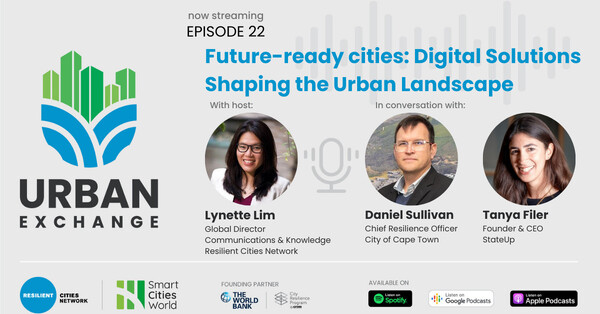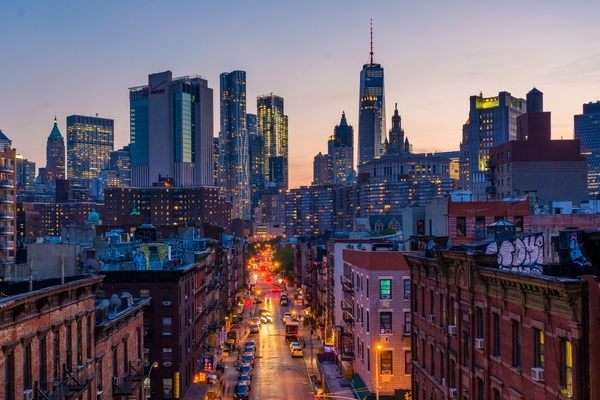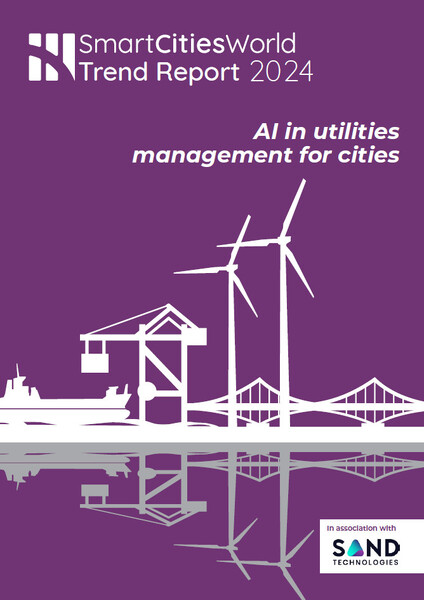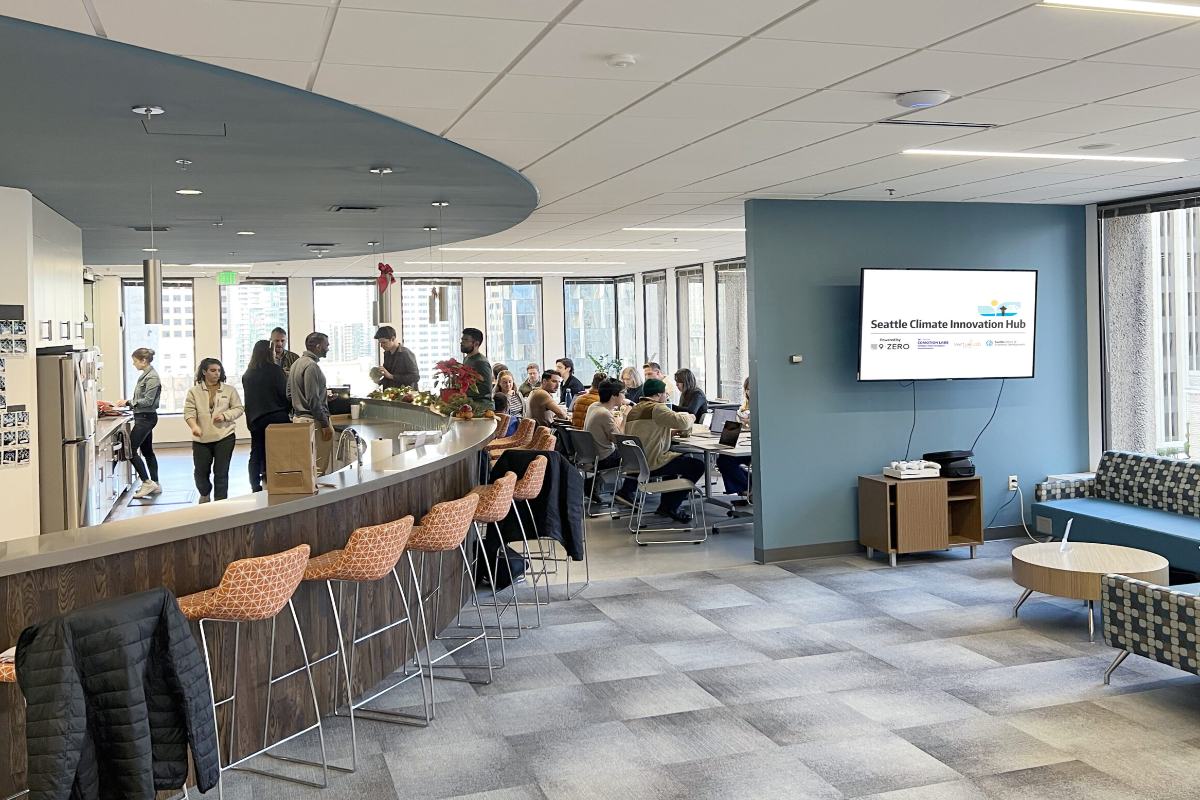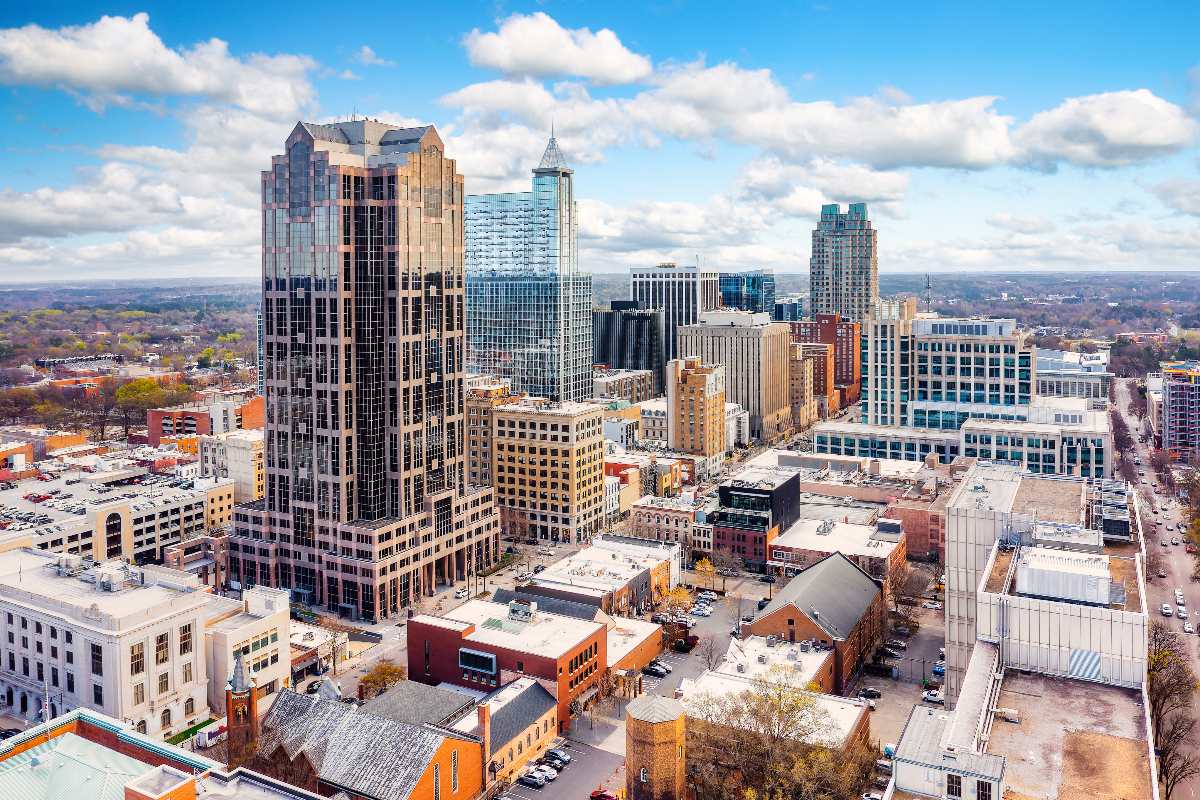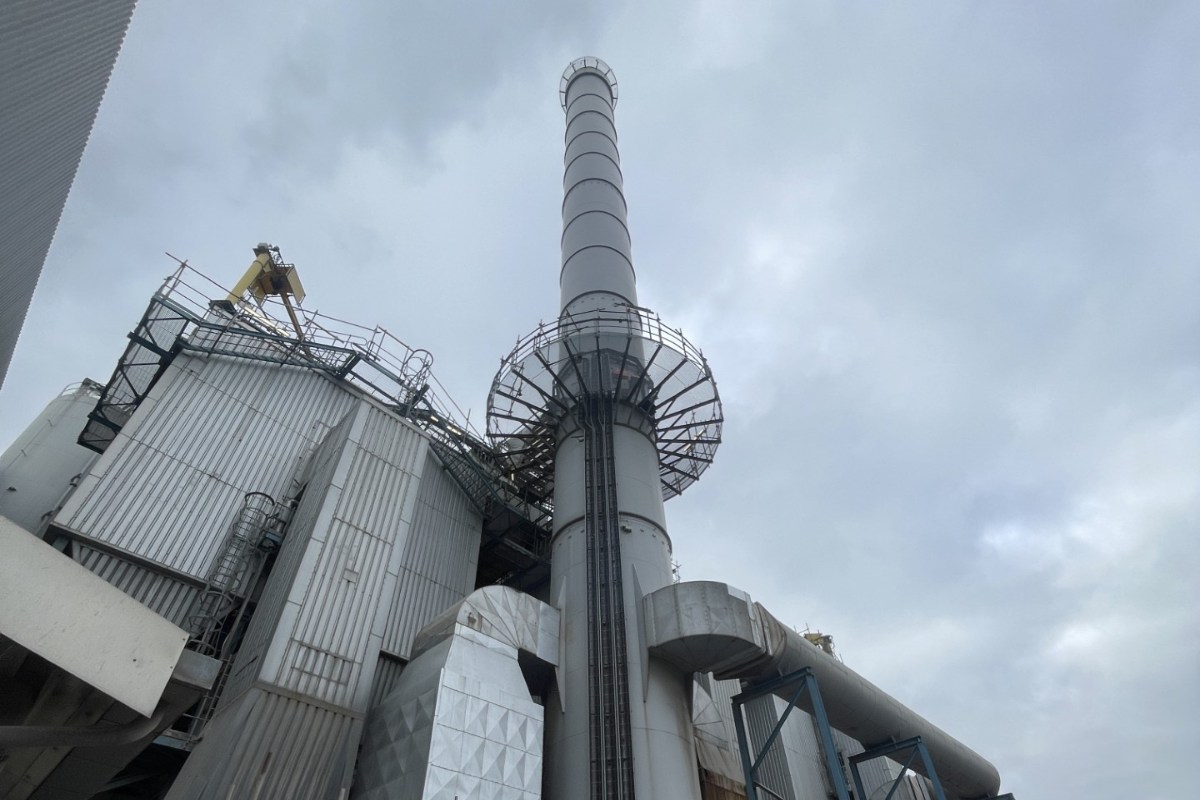Special Reports
SusHi Tech Tokyo 2024: experience ‘Tokyo 2050’ todaySponsored by The SusHi Tech Tokyo 2024 Showcase Program Executive Committee
Furthering the role of local leadership in US climate action
Kate Wright, executive director of Climate Mayors, details the unique role of mayors in furthering urban climate action, explaining how communication can bring them closer to communities to make the most of unprecedented federal funding.
With the introduction of a lot more federal funding to help cities combat climate change, has the last 12-18 months felt like a tipping point for mayors and their climate action ambitions?
Absolutely, it does feel like a tipping point. Mayors have been diligently working on climate action plans and setting ambitious targets for nearly a decade, but now with the infusion of unprecedented federal funding, they are poised to make significant strides in combatting climate change.
Cities have been at the forefront of the battle against climate change, grappling with the need to enhance resilience and address the escalating consequences of greenhouse gas emissions. But the sheer magnitude of federal funding, thanks to the Bipartisan Infrastructure Law and the Inflation Reduction Act, has completely reshaped the landscape for transformative climate action.
Just considering the Inflation Reduction Act alone, it has been hailed as one of the most substantial investments in clean energy the world has ever witnessed. We’ve seen $278 billion announced in new private clean energy investments, leading to the creation of approximately 170,000 new jobs, which represents a monumental opportunity for environmental change and economic opportunity.
The Inflation Reduction Act has allocated over $15 billion in funding to support the transition to electric vehicles and other low-carbon or zero-carbon transportation modes. These investments are not short-term fixes, they will have impacts long into the future by reducing air pollution, curbing greenhouse gas emissions, and mitigating the related health impacts.
We hope that what we’re seeing is proof of concept that those investments do make a difference across a number of indicators, from health and environment to economy as well. The progress that’s been made so far will continue to prove the case for further investment, both at the government level and from the private sector.
"Our mayors take a holistic approach to climate action ... They don’t see addressing the critical impacts of climate change and the crisis that climate change has created as separate from the housing crisis and from the racial equity crisis"
How important has it been to see a balance in where funds are being allocated locally, particularly between investments in hard infrastructure projects, and projects to reconnect communities to put climate justice front of mind?
It’s absolutely crucial, not least because climate justice has been at the heart of our mission at Climate Mayors from the very beginning. We believe that there can be no sustainable future without equity. Historically, we’ve witnessed how climate change has disproportionately affected marginalised communities, particularly those who are Black, brown, or economically disadvantaged. It’s paramount that we prioritise equity in the allocation of these funds at the local level.
The level of funding that we’re currently seeing presents a unique opportunity to safeguard the safety and future of these vulnerable residents. We commend the Biden administration for their leadership in adopting the Justice40 approach, which aims to direct 40 per cent of funding towards these communities that have historically borne the brunt of environmental challenges. Our mayors are fully aligned with this approach and have set their own local goals to address historical injustices.
There are a couple of concrete examples that really help illustrate the transformative power of these investments that I want to mention. The city of Atlanta has received funding from the Reconnecting Communities programme under the Bipartisan Infrastructure Law for a project known as "The Stitch". The project includes a 14-acre park featuring affordable housing and improved transportation. The overarching goal, as the name suggests, is to mend the historical wrongs that deliberately divided a historically Black community in the 1950s. The Stitch aims to reunite this community through green spaces, housing, and transportation infrastructure.
Similarly, the city of Richmond has submitted a $10 million grant proposal through a programme funded by the Inflation Reduction Act. The grant supports urban greening initiatives led by brown and Black coalitions in Richmond, Virginia.
These are just a couple of many examples across the nation where funding is catalysing projects that directly benefit communities that have historically suffered the most from the impacts of climate change. We have a unique moment to rectify those historical injustices and further enhance community resilience.
Our mayors take a holistic approach to climate action, which is really important. They don’t see addressing the critical impacts of climate change and the crisis that climate change has created as separate from the housing crisis and from the racial equity crisis. They recognise that the best solutions should provide benefits across each of those key challenges.
What support has Climate Mayors as an organisation been able to provide its members in this time period?
We’ve been actively supporting our members during this period and collaboration has been a cornerstone of our approach. We’ve partnered with other organisations dedicated to addressing climate change in cities, such as C40 and USDN, to provide mayors and city leaders with essential guidance regarding federal funding, with a particular focus on the climate-related opportunities it presents.
Our assistance encompasses several key aspects:
Accessing funding
We’re helping our members understand how to apply for and access these crucial funds. Navigating the complexities of federal funding can be challenging, and we’re here to ensure they have the knowledge and resources they need.
Prioritisation
With various funding opportunities available, we’re assisting mayors and city leaders in determining which ones align best with their climate action goals. Prioritisation is vital to ensure that the funding has the greatest impact.
Community engagement
Beyond direct funding applications, we’re emphasizing the importance of engaging with business owners and community members. City leaders can play a vital role in streamlining local regulatory processes to maximize the effective use of these funds and protect against negative development.
Educational webinars and convenings
We’re actively organising educational webinars and events that facilitate peer-to-peer learning among our members. These platforms allow city leaders to exchange knowledge, experiences, and best practices.
Guidebooks and resources
In collaboration with C40, we’ve developed an Inflation Reduction Act guidebook. This provides a comprehensive overview of the various roles cities can play and breaks down the tax breaks, credits, and incentives available to them. It simplifies the process of identifying and pursuing different funding opportunities.
It’s important to note that our member base is incredibly diverse, representing a wide range of cities, from major metropolises like New York, San Francisco, and Los Angeles to smaller and medium-sized communities, including those in rural areas. Recognising that smaller communities often have fewer staff resources, organisations like Climate Mayors, C40, USDN, and others in this space also provide support and capacity-building to help them navigate these opportunities effectively. Ultimately, our collective goal is to empower cities of all sizes to make the most of these opportunities and advance their climate action agendas.
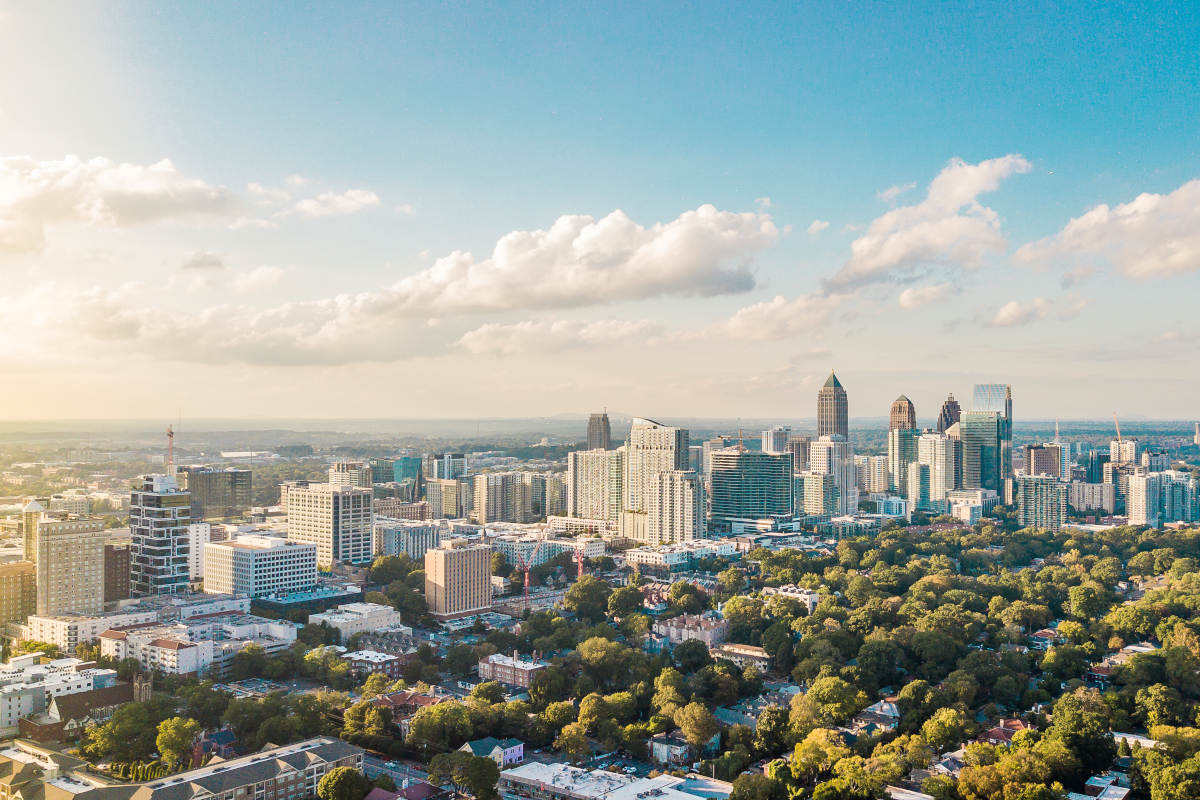
What kind of feedback have you received from your members around those resources? How important has it been for them to be part of a network like Climate Mayors at a pivotal time like this?
For elected officials, particularly mayors who are at the helm of their cities, having a platform for peer learning is invaluable. This holds true not only during pivotal times like these but at all times. It’s essential for catalysing innovation and replication of successful strategies. What sets us apart is the remarkable diversity within our membership. We represent cities from all regions of the United States, encompassing a wide range of sizes and addressing a myriad of climate issues. This diversity of experience and expertise is particularly valuable now, given the transformative opportunities before us.
"Our goal is to ensure that communities truly understand and experience the on-the-ground benefits intended through these programmes"
There is currently an abundance of new grant programmes and funding sources available, and being part of a group that can aggregate feedback and serve as a collective voice and bridge to federal agencies developing these guidelines has proven to be indispensable for members. They appreciate the opportunity to provide collective feedback through us, enabling us to effectively liaise with federal agencies. We’ve already witnessed improvements in grant guidelines as a result.
Learning curves are expected, especially when dealing with innovative mechanisms like the direct pay mechanism introduced by the Inflation Reduction Act. This mechanism extends federal tax credits, traditionally available to corporations, to cities and other groups for clean energy projects. While it represents new terrain for us, it’s an exciting opportunity to advance clean energy initiatives. The recognition from the Biden administration about the critical role mayors play and their openness to direct input from on-the-ground leaders doing this work is encouraging.
What does Climate Mayors have planned in the next six months to continue helping get these funds into cities?
In the next six months, Climate Mayors has an array of strategic plans in collaboration with partners like C40 and USDN to ensure that federal funds are effectively channelled into cities. First and foremost, we’re focusing on providing direct technical assistance to our member cities. We understand that navigating the various federal programmes can be complex, so we’re offering hands-on support to help cities make the most of these opportunities. This includes helping them understand the intricacies of different programmes and how to access them.
Communication is key so we’re arming mayors with a toolbox of communication tools. It’s important to recognise that many benefits from the Inflation Reduction Act aren’t traditional grants to cities; they often come in the form of tax credits and rebates available directly to consumers and businesses. That means we need to emphasise the potentially decisive role mayors can play in raising awareness within their communities about these opportunities. We’re planning to organise city workshops specifically focused on areas like direct pay and tax credits as a result, looking to bring together key stakeholders to facilitate learning and knowledge sharing.
Currently, we’re observing low awareness of the Inflation Reduction Act in public polls, even though there is substantial support for specific programmes within the act that could benefit citizens and businesses, such as clean energy rebates and tax credits. It’s now about leveraging the platform that mayors have and their strong relationships and political capital to bridge that awareness gap. Our goal is to ensure that communities truly understand and experience the on-the-ground benefits intended through these programmes. It’s an exciting challenge, and we’re dedicated to making sure these opportunities are maximised for the benefit of cities across the United States.
Our aim is to work at both the city level and on a broader scale. By diving deep into individual cities and their specific needs, we can produce valuable learnings that can then be replicated in cities across the United States. At the same time, we’ll continue to engage at the federal level, collaborating with different agencies to ensure that grant programmes are designed in a way that fully optimises the potential for climate and equity benefits.

Actionable insights
-
Equity in focus: Advocate for and ensure that climate funds are allocated with a focus on equity, addressing historical injustices, and benefiting marginalised communities
-
Don’t reinvent the wheel: Support and align with government initiatives, like the Justice40 approach, that aim to direct a significant portion of funding to historically disadvantaged communities
-
An all-in-one approach: Promote and implement holistic approaches to climate action, recognising that solutions should address critical impacts of climate change, the housing crisis, and racial equity challenges simultaneously.
- More about Climate Mayors
- More about Justice40
- More about C40 Cities
- More about USDN.
The SmartCitiesWorld Toolbox is a new feature designed to draw out the key insights from our special reports and combine them with helpful resources for city practitioners to dig deeper and assess their own next steps. Something missing? Let our editor know at lukea@smartcitiesworld.net.







